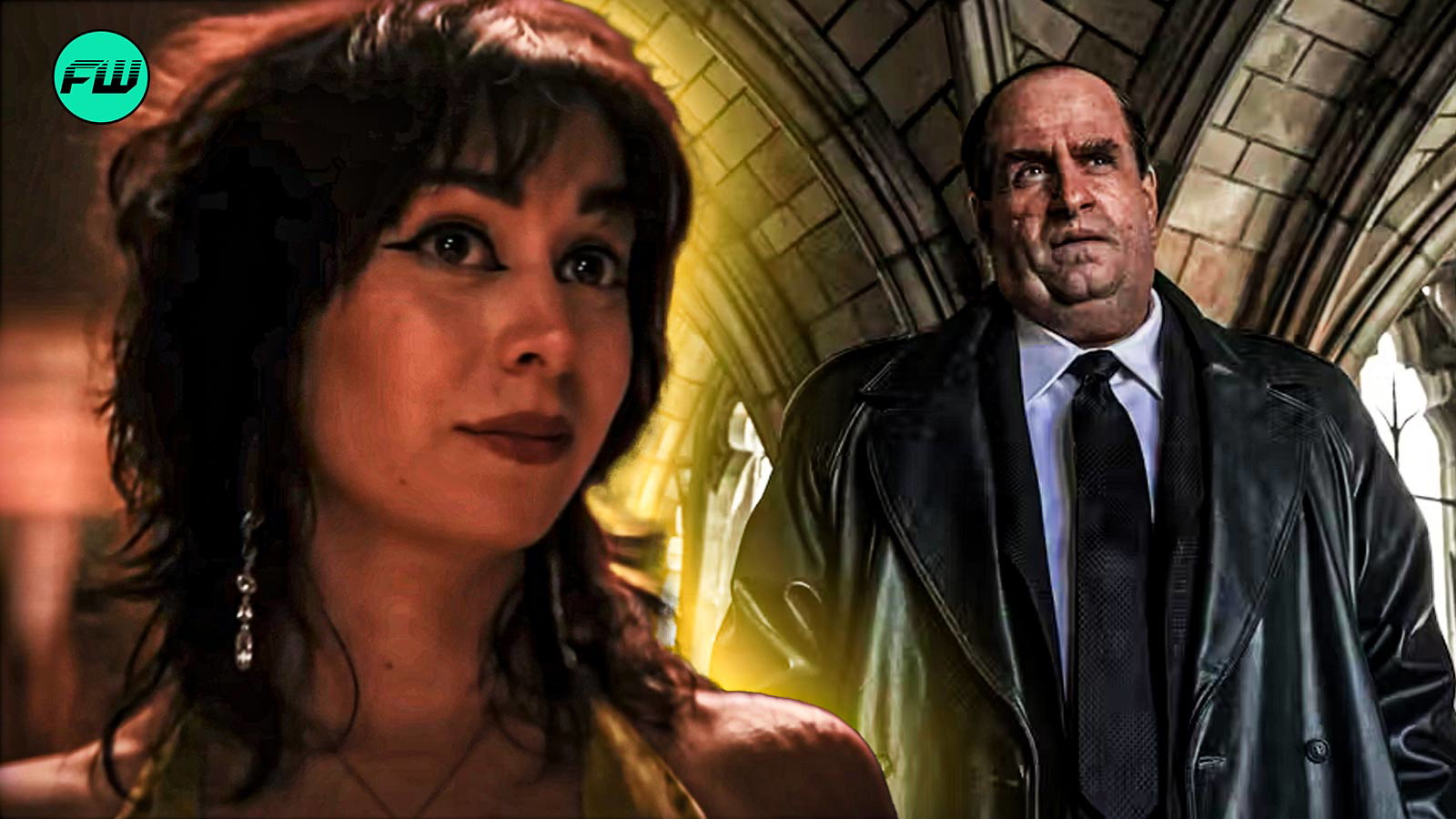In the world of Gotham’s criminal underworld, nothing is ever as simple as good versus evil. The complex narratives and the dark psychological underpinnings are what make The Penguin a standout adaptation on HBO. In the fourth episode, Cent’Anni, the series plunges headfirst into the tragic transformation of Sofia Falcone, portrayed by Cristin Milioti, offering a raw and intense look at her descent into madness.
 Cristin Milioti as Sofia Falcone in The Penguin | HBO
Cristin Milioti as Sofia Falcone in The Penguin | HBOThe episode was pivotal not only for its brutality but also for its purpose of exploring Sofia’s psychological unraveling in a way that wasn’t mere spectacle. Director Helen Shaver played a crucial role in ensuring the episode didn’t devolve into senseless violence but rather showcased a character’s rebirth through trauma.
Helen Shaver’s Vision For The Penguin: Avoiding Gratuitous Torture
 Cristin Milioti as Sofia Falcone in The Penguin | HBO
Cristin Milioti as Sofia Falcone in The Penguin | HBOIn an episode as emotionally charged and visually intense as Cent’Anni, it would be easy to get lost in the sheer brutality of Sofia’s experience at Arkham State Hospital.
But director Helen Shaver had a clear goal which she spoke about in an interview with Deadline. The episode had to tell Sofia’s story with purpose, showing her gradual unraveling rather than subjecting the audience to violence for violence’s sake.
What I knew it needed, which Lauren certainly echoed, was a willingness and an examination of what it would be to be stripped of everything.
Otherwise, it is just gratuitous torture, like ‘let’s beat this woman up.’ If we’re going to hit her, there must be a bruise, but the bruise is not just a physical bruise. We want to see the wound, and we want to see the repercussions on what that does to the human.
This approach ensured that every moment of the torture Sofia endured had a purpose, and it wasn’t about shocking the audience with relentless violence but about allowing viewers to witness the breakdown and rebirth of the character.
The Importance of Sofia Falcone’s Arkham Journey
 Cristin Milioti as Sofia Falcone in The Penguin | HBO
Cristin Milioti as Sofia Falcone in The Penguin | HBOWhile The Penguin may be named after Oswald Cobblepot, this episode’s focus on Sofia Falcone serves as a crucial narrative shift. Sofia’s breakdown in Arkham State Hospital is not just a subplot, it’s essential to understanding her motivations and eventual emergence as a primary antagonist.
The torment she endures, both physical and psychological, gives depth to her character and explains why she becomes such a dangerous adversary to Cobblepot. For the narrative to work, it was essential to delve deep into Sofia’s psyche. By showing her trauma at Arkham, viewers understand her shift from a victim to a calculating, ruthless figure.
This episode is critical in positioning Sofia as more than just a secondary character! Her rise to become Cobblepot’s rival has as much to do with the scars left by Arkham as it does with her past. The shock treatment, the emotional betrayal by her father, and the intense pressure to suppress her trauma, all these elements make her a character you fear but also understand.
You can watch The Penguin on HBO MAX.
.png)
 12 hours ago
12
12 hours ago
12




































 Bengali (BD) ·
Bengali (BD) ·  English (US) ·
English (US) ·